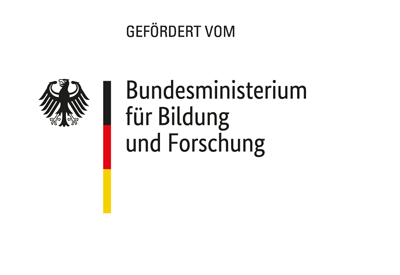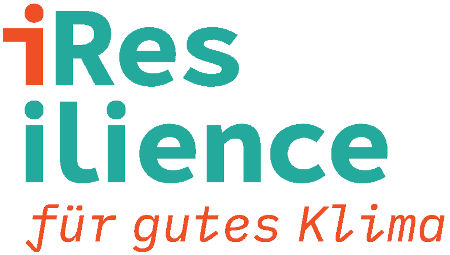iResilience: Social innovations and smart city infrastructures for the resilient city of the future (iRes)
Research area Transformative governance in cities and regions | Stephanie Bund | Dr. habil. Rick Hölsgens
The project team members work together with local stakeholders to develop innovative solutions to the complex and dynamic challenges of climate change and sustainable development and test these solutions in living labs.

Federal Ministry of Education and Research (BMBF)
The objective of the "iResilience" project is the model development and testing of new practices and technologies for the continuous improvement of urban, climate-adapted resilience. The project team is working with local stakeholders to develop innovative solutions to the complex, dynamic challenges of climate change and sustainable development and test them in urban real laboratories.
With the help of social innovations, co-creative planning processes, and digital applications and tools, cross-cutting and targeted ways of preparing and supporting implementation and monitoring the measures and processes are being developed.
At the center of iResilience are real-lab processes in Dortmund and Cologne, in which the administration works with citizens on concrete topics of urban resilience using a participatory approach. The objective in both cities is to combine flood prevention and heat prevention with a livable urban design.
iResilience expands the solution space of developing urban climate resilience by preparing the potentials of social innovation and digital innovation for use in the reallabor processes and merging them at the process level into new socio-digital innovations.
Social innovation aims at an intentional change of action practices, an innovative aspect in the resilience discussion, which is often focused on technical measures alone. Social innovation does not only include a higher degree of participation in planning processes, the framework for new citizen ideas or a stronger commitment to a climate resilient city. Rather, social innovation opens up opportunities for different behaviors in dealing with the impact of a more climate-resilient city, such as shaded walkways on heat days, different mobility behaviors, or working with others for more green in neighborhoods.
Digital innovations open up opportunities and risks for broader transparency about urban planning and decision-making processes, as well as possibilities for broader, bidirectional communication between people in the neighborhood and responsible parties. iResilience will test how existing or prototyped apps can be used to inform about current vulnerability, how digital visualization helps to support reallabor processes with alternative planning options, and how multi-layered communication can be used to raise awareness and new pathways to a more climate-resilient city.
- German Institute of Urban Affairs (Difu), Environmental Division
- Research Institute for Water and Waste Management at RWTH Aachen University (FiW) e. V.
- HafenCity University Hamburg (HCU), Department of Architecture and Landscape
- City of Dortmund, Coordination Office "northwards
- City of Cologne, Environmental and Consumer Protection Office
- Cologne Municipal Drainage Works, AöR
- Dr. Pecher AG, Erkrath
- TU Dortmund, ie³ - Institute for Energy Systems, Energy Efficiency and Energy Economics
- Model development and testing of new practices and technologies and innovative solutions to continuously improve urban climate-adapted resilience.
- Multifunctional resilient measures collaboratively developed in the real-lab spaces, prepared for implementation, and tested.
- Develop cross-cutting and targeted ways to prepare, support, and monitor implementation of measures and processes using social innovation, co-creative planning processes, and digital applications and tools.
Through a combination of different social processes (neighborhood-level reallabs and integrated roadmapping) and technical innovations ("smart" (networked) city infrastructures), the project seeks to design processes and measures with the neighborhood population as well as the city administration that contribute to a continuous improvement of climate resilience in the partner cities of Cologne and Dortmund.
The reallabs in iResilience form the structural element and framing format. In iResilience, the city quarters Dortmund-Jungferntal, Dortmund Innenstadt-Nord and Cologne-Deutz are understood as real laboratories and thus geographical places and spaces in which real experiments are implemented within a fixed circle of responsible persons from the administration, citizens and various experts within a defined period of time in order to work on a specific problem or key issue in mutual impulse transfer and to learn from each other in a co-evolutionary manner.
Only the combination of procedures can support comprehensive, integrated and resilient urban development, which is why we pursue the approach "iResilience - Social innovations and smart city infrastructures for the resilient city of the future (iRes)".




![[Translate to English:] [Translate to English:]](/storages/zentraler_bilderpool/_processed_/a/f/csm_Kontakt_b86e8d8ecc.png)
![[Translate to English:] [Translate to English:]](/storages/sfs-sowi/_processed_/6/c/csm_Glasfront_sfs_Header_eae6d325d3.jpg)
